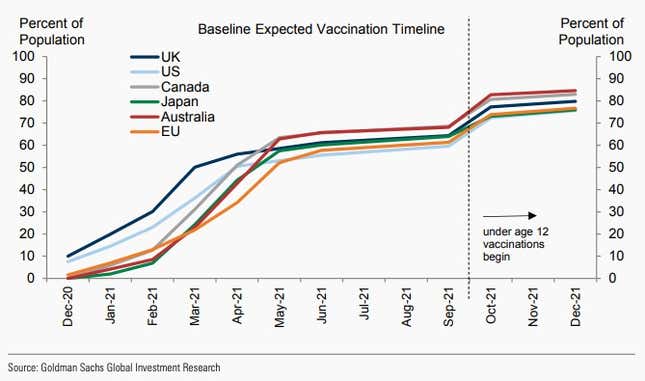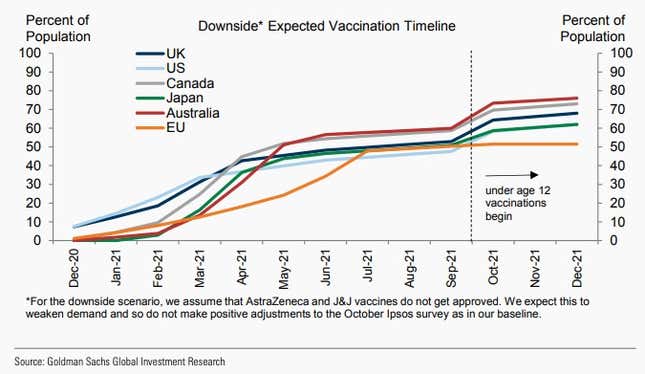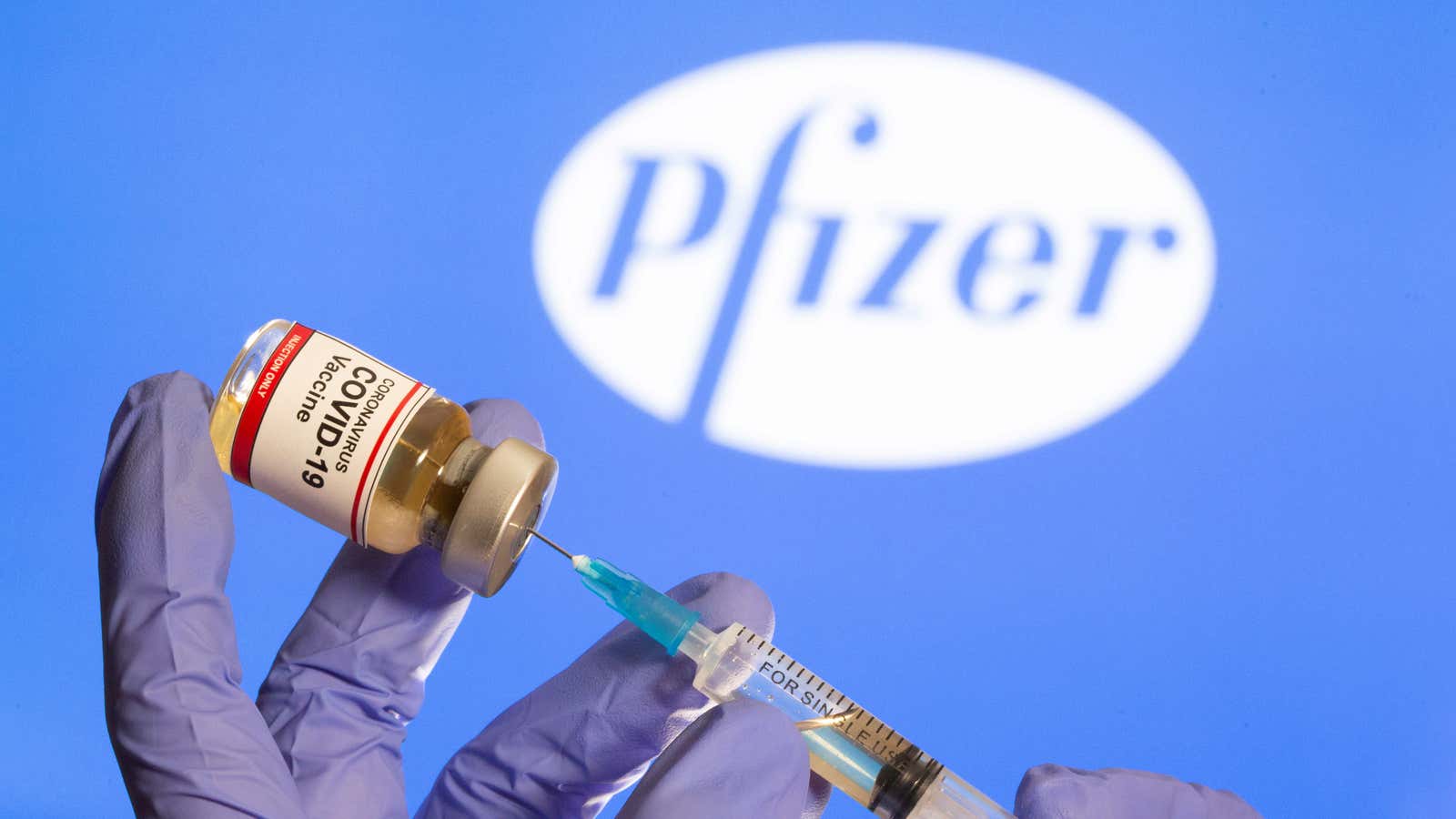The top question for the global economy is how quickly people will be given an effective vaccine against Covid-19, reducing the need for job- and business-destroying lockdowns. Economists at Goldman Sachs thinks large swaths of the populations in developed countries will be vaccinated by the middle of next year.
In the US, high-risk groups will probably start receiving doses of a vaccine by the middle of next month, which could provide substantial public health benefits by March, according to a research note by Goldman economists led by Jan Hatzius and Daan Struyven. They expect Britain will have vaccinated about 50% of its population by March, while Canada and the US will have done so in April. The EU, Australia, and Japan will likely reach that point by May, and vaccinations may exceed 70% in all developed economies by the fall, the note says.

Goldman’s analysis was focused on developed countries. Poorer nations, meanwhile, are at risk of being left behind as wealthy governments scramble to immunize their countries as quickly as possible. Unicef, the UN children’s fund, is among groups, including airlines and shipping lines, working to distribute 2 billion doses of a Covid-19 vaccine to developing countries next year. Leaders of G20 countries recently pledged to distribute vaccines equitably.
Even in rich nations, a rapid vaccination timeline isn’t assured. AstraZeneca shares whipsawed this week as doubts emerged about its seemingly promising Covid vaccine trials, which haven’t yet appeared in a peer-reviewed publication. If vaccines from the Cambridge-headquartered pharmaceutical company and from Johnson & Johnson don’t succeed, Goldman economists expect vaccinations will be slower in Europe, which is likely to depend more on those drug companies.
Likewise, demand for vaccines could be lower than expected if large parts of the population are reluctant to receive it, particularly in the US and Japan, according to survey data. The bank’s economists think Canada and Australia are more insulated from these concerns, as those countries have diversified supply contracts and “relatively strong vaccine demand measures.”

Goldman based its analysis on trial results from Pfizer-BioNTech, Moderna, and AstraZeneca, as well as production schedules for those companies, purchase agreements, and comments from government leaders and health officials on possible vaccine approvals. The economists also considered vaccine demand, based on Ipsos survey data, which signals that many people expect to wait a while before taking the vaccine, potentially to learn more about safety and effectiveness.
While there are many risks and uncertainties, Goldman’s economists expect growth to get a boost from immunization next year. “The medium-run effects of the various vaccine candidates, their impact on transmission, vaccine supply, and especially vaccine demand remain quite uncertain and imply that risks are skewed to a later timeline,” they wrote. “While the exact timeline remains quite uncertain, this analysis reinforces our baseline forecast that widespread immunization should drive a sharp pickup in global growth starting in Q2.”
